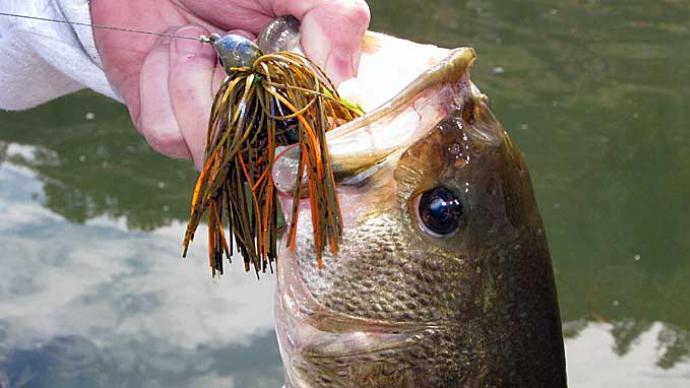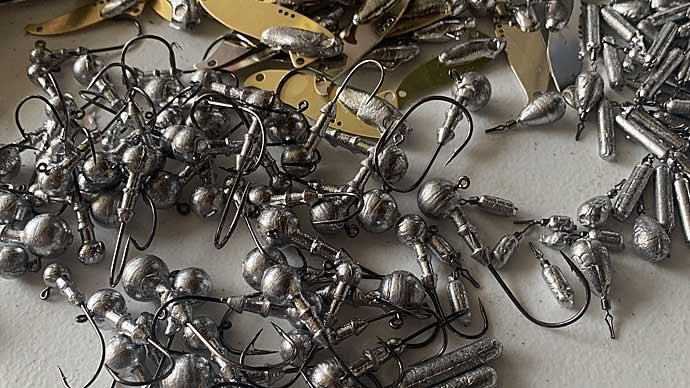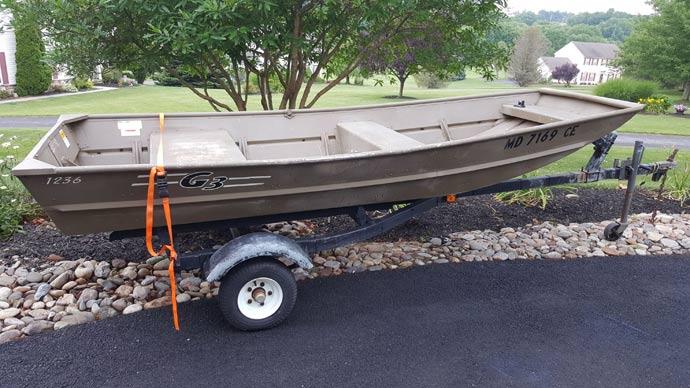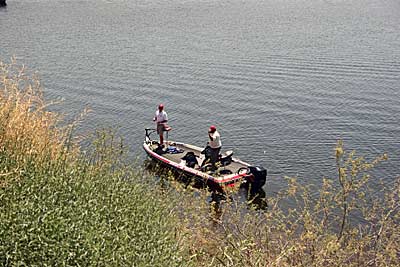
The price of just about everything seems to be spiraling out of control these days, which means every dollar you can save counts. For a lot of us, fishing counts as a luxury, but one we'd just as soon not have to forgo!
Fortunately, there are plenty of ways to save money on bass fishing so you can still enjoy your favorite sport. Here are six categories you can pinch pennies in – and it all adds up!
FUEL
For a lot of us, fuel is one of our highest costs. However, there are many ways to cut back on fuel costs – here are a few:
- Buddy Up. If you and a friend both want to go fishing, you can cut your fuel cost by going together – and that's both tow vehicle fuel and boat fuel.
- Fish Closer. Try fishing a lake closer to home or fish closer to the ramp. If you need to run clear down the lake, is there a ramp closer to there that you can put in?
- Downsize. Get a kayak or a float tube – it will not only eliminate boat fuel costs, but you’ll also learn a whole new way of fishing. Plus, you can fish in smaller, less crowded waters where big motors are prohibited.
- Keep your tires properly inflated on both the tow vehicle and trailer.
- Keep your boat's hull clean and smooth – the less friction, the less fuel you need.
- Run at the most economical RPM for your motor. Check your manual to see what that number is.
- Make sure you’re running the right prop.
- Avoid jackrabbit starts (on AND off the water!).
- Lighten the load. A couple of my buddies decided to see who had the most stuff in their boat the other day. The winner had 184 pounds of tackle! That’s like having an extra passenger, and that costs gas.
- Clean your vehicle’s air filter.
BAITS
Sometimes the prices on baits blow me away. I saw a $70 spinnerbait the other day! That's insane, but good hard baits can run $25+ and don't even get me started on swimbaits. Here are some ways to save money on baits:
- Use a lure retriever. There are many lure retrievers on the market, so find one that you like best and keep it where it's handy on deck. No point in spending $20 on a lure and then leaving it in a tree!
- Ultimate Lure Saver Split Rings. These titanium split rings release the hook under prolonged, steady pressure. You use them to attach the hooks to your expensive hard baits, and if they get stuck on a log or something, a long steady pull will get them free from the hook and back to you. I haven't tried these, and reviews are split (no pun intended), but they seem worth a shot. You can get them at thrillon.com.
- Softer hooks. Softer hooks work the same way as the split rings above. Back in the day, we caught massive bass on Westy Worms rigged with soft gold hooks and seldom had one straighten out. However, if you snagged on a rock or something (so common with that back hook!), you could pull hard and steadily and straighten the hook out. You can also get softer treble hooks.
- Repaint your lures. I used to have a big old Poe's crankbait that I caught a ton of fish on at Roosevelt. The problem is, crashing it on the rocks did a number on the paint, and once the paint is off a wood bait, you've got a problem. But nothing a little model paint couldn't fix! No need to replace when you can repaint.
- Weld your worms. It may seem ridiculous, but every worm counts when a bag of plastics costs over $10. I don't know about you, but I can go through two or three bags daily. You can use a regular lighter to "weld" worms back together and get twice the use out of them, if not more.
- Use sleeves and O-rings for wacky rigging. Putting the hook right through the worm makes the worm wear out fast. So instead, use sleeves or O-rings for wacky rigs, and put the hook on them instead of the worm.
- Use stouter worms. I am a massive fan of Yamamoto baits, but those things are soft, and I trash them quickly. On the other hand, Z-Man's ElaZtech baits are tough! Seriously, you can get one to last all day – plus, they're buoyant, so they are fabulous for drop shot, Carolina rigs, topwater, and more.
- Try a cheaper brand. Seriously. Very often, they're selling the sizzle, not the steak. I've caught tons of fish on crankbaits from the bargain bin at Bass Pro.
- Pour your own. If you have a favorite worm that you pretty much live and die by, make a small investment in a mold or two and some plastic and try pouring your own. It could even become a cottage industry if your buddies decide they want some too.
- Buy used. Check out estate and yard sales – I’ve bought entire tackle boxes full of stuff for like ten bucks – and some of the lures are vintage!
RODS AND REELS
- Tie them down! I can’t even count how many of my fishing buddies have lost rods and reels because they don’t use the tie-downs on the deck. One rogue wave bounces the boat, and the loose rods are over the side, never to be seen again. That gets pricey in a hurry!
- Make sure the rod lockers lock open. Unfortunately, I've had my share of boats without locking mechanisms to open the rod locker lids. That's mostly why I've had my share of broken rods.
- Loosen the drag on your reels when you put them away after a fishing trip. Keeping the drag tightly set can cause flat and damaged drag washers, especially if there is moisture in the reel. It only takes a few seconds to back the drag off, and it can save you a lot on reel repairs. Warning: if you have a heavy lure still tied on and hooked into a guide, it will probably fall off when you loosen the drag.
- Take advantage of warranties. When you buy a new rod or a new reel, check the warranty and save it with the date of purchase written on it, along with the receipt. I scan all that stuff into a file on my computer. Why pay for a replacement if you can get it replaced or repaired free?
- Maintain your reels. Now and again, a reel will need a bit of oil and cleaning. Look online for videos on how to do that – I usually take mine to a local tackle shop and have it done because I tend to have parts left over if I take things apart. Also, it's a lot cheaper than a new reel.
- Use rod socks. Those stretch tubes that slip over your rods are fantastic for keeping them from getting tangled together in the rod locker. Tangled rods can get damaged (especially if you start getting frustrated), so get some rod socks and use them.
Image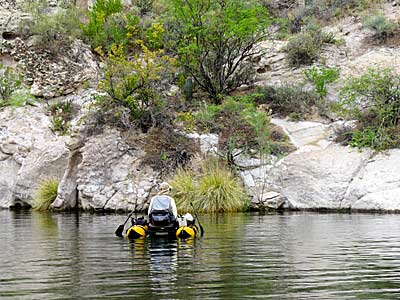
Downsize to a float tube or kayak. LINE
Line is another item whose price is not going down. Some guys I know change their line out after every day when they're fishing a tournament, and that gets expensive fast. But even if you aren't that extreme, stuff happens. You get nicks and kinks in the line, you get snagged, or it just gets roughed up fishing heavy cover or rocks. But, of course, you'll have to change your line eventually, so here are some ways to make that a little cheaper.
- When you replace the line on your reel, use another reel and wind it onto the second one. The unused line will end up on top – cutting the cost of re-spooling in half!
- Buy in bulk. If there is a certain kind of line that you use a lot of, buy bigger spools. Sometimes those smaller spools barely fill up a big reel, or you end up with little dabs of line left that aren’t much good for anything but making leaders. Just be careful that you don’t buy so much that it gets old before you can use it.
- Keep it out of the sun. Nothing messes up fishing line like UV rays, so try to keep your reels out of the sun. Put it in the rod locker if you're not using a rod.
- Don't crimp. I used to crimp a split shot on my line all the time, not just for split shotting. I'd also crimp one on to hold a heavy weight in place for Carolina rigging. The trouble is that crimping weakens the line and ends up breaking. Using a split shot at the bottom of a drop shot rig is excellent, though – if you get snagged on a rock, it will pull off, and you'll still have your expensive hook and bait!
- Use line conditioner. It coats and protects your line and even makes it easier to cast, so you get fewer bird nests, plus your line lasts longer. Lucas Oil makes a good one called Lew's Speed Cast Line Treatment and Conditioner. It's only nine bucks at Tackle Warehouse, and a bottle lasts long.
Image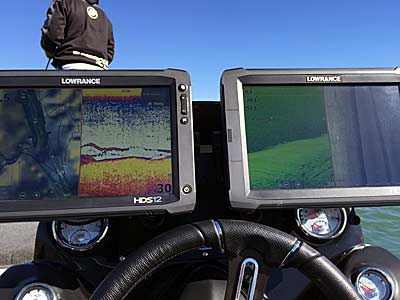
Take your electronics inside whenever possible, and get locks for them for when they're on the boat. ELECTRONICS
Those enormous screens are pricey beyond belief – and you probably don’t need one unless you’re a pretty high-stakes tournament angler. But even a smaller fish finder will run you a couple hundred bucks, so here are some tips to keep your investment safe and in good condition.
- Even if you store your boat in a garage, take your finder off and store it in the house. Electronics don't like very hot and very cold temperatures. So there's no sense in having to pay to get it fixed.
- Never leave your unit on the boat unattended. I know many guys who have had their electronics stolen while parked outside a hotel at a tournament. It may be a pain to keep taking them off and back on, but it's better than having them stolen.
- If you absolutely must leave them on the boat, invest in the best lock you can find. Durasafe E-Locks are $46 each, and you can get up to four that will use the same keys.
YOUR BOAT AND EVERYTHING ELSE ON IT
Unfortunately, boat theft is rising, along with other kinds of theft. We had someone steal the bunks off our trailer while we were on the water! I also know people who have had the entire trailer stolen while they were fishing, and it's a real pain when that happens. So here are some ways to protect your investment.
- Wheel locks. Keep your wheels where they belong – on YOUR trailer!
- Prop locks. A prop lock will cost at least $70, but a stainless prop is hundreds, so put a lock on it.
- Locking rod lockers. I've heard two sides to this. One side says if you lock the boxes, the thieves will break them, and then you're out the tackle AND a repair. The other side says many thieves check for open lockers and move on. I'm in the "leave them open" camp. We live in the desert, and it's too hot to leave our plastics and tackle in the boat anyway, so our rod lockers are empty unless we're fishing. The only things we leave in the boat are things like towels and rope. So we leave ours open, so they don't get broken into.
- Use a hitch lock. We leave our boat and trailer outside under a cover. It's behind a locked gate, but the gate could be forced, and a thief could hitch it up and take off, except that we have an extremely strong Master Lock on the front of the hitch. It will take someone a lot of time and serious tools to get that thing off. There are all kinds of hitch locks to be found, so get one that you're comfortable with and use it religiously. It will go a long way toward protecting you from trailer theft while you're on the water.
- Use a good UV protectant when you wipe your boat down to keep the sun from hazing up the gel coat. Use it on the seats, too.
BONUS TIPS
- If you take a safe boating course from the Coast Guard or Boat US, your insurance company might give you a break on boat insurance. You can find those courses online.
- You can save a lot of money by packing a lunch to eat on the way home from the lake instead of stopping for fast food (and you know that stuff isn't good for you).
Although some of these money-saving tips require an initial outlay of cash, they can save you a ton of money in the long run. Just because times are tough shouldn't mean you should have to quit fishing. Just find ways to make it affordable.
BassResource may receive a portion of revenues if you make a purchase using a link above.


